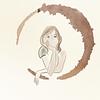You need to sign in or sign up before continuing.
Take a photo of a barcode or cover
emotional
reflective
slow-paced
Plot or Character Driven:
Character
Strong character development:
Yes
Loveable characters:
No
Diverse cast of characters:
Yes
Flaws of characters a main focus:
Yes
Right now I'm just dealing with the fact that Emma Bovary is an immensely less likable heroine than Anna Karenina (yet another 19th century literary character who finds out that cheating isn't all it's cracked up to be), and yet I still like it. The main difference is that Tolstoy is earnest, while Flaubert is trying to poke fun and point fingers. I tend to be earnest, but even though it sometimes makes me feel guilty, I can enjoy poke fun and pointing fingers too.
I don’t see a reason to care about anyone in the book. Might read this when I’m significantly older.
emotional
sad
tense
medium-paced
Plot or Character Driven:
A mix
Loveable characters:
Complicated
Diverse cast of characters:
No
Flaws of characters a main focus:
Yes
"¡Es cosa de la fatalidad!"
No tendría tantos problemas con este libro si no fuera por esta razón:
1-La protagonista.
Nunca lleguó a agradarme Emma, y hacía de la lectura un suplicio: me daban ganas de abofetearla. Fue una mujer egoísta, cruel, e insatisfecha. Tenía un hambre de desear más que resultaba irritante. Por lo demás la obra muestra una sociedad donde las mujeres no pueden cumplir sus sueños (cualesquiera que sean estos), donde la gente la mayor parte del tiempo quiere aprovecharse de los demás y no es del todo sincera, y donde los amantes son de un amor superficial y finito.
Sentí una enorme pena por el señor Bovary; no se merecía todo lo que le ocurrío.
En fin, que el libro muestra una sociedad aprovechadora, con una falsa moral y en una guerra constante entre la ciencia y la religión (por momentos se podía vislumbrar una sociedad muy parecida a la actual, lo cual es destacable dado que este libro fue escrito mucho antes de que se conformara nuestro mundo contempóraneo). Creo que estás son las razones de por qué esta novela es un clásico, y un buen fundamento para leerlo... pero la protagonista realmente fue insufrible, junto con algunos pasajes del libro donde encontré la descripción extensa e innecesaria, son la razón de las tres estrellas en esta reseña.
No tendría tantos problemas con este libro si no fuera por esta razón:
1-La protagonista.
Nunca lleguó a agradarme Emma, y hacía de la lectura un suplicio: me daban ganas de abofetearla. Fue una mujer egoísta, cruel, e insatisfecha. Tenía un hambre de desear más que resultaba irritante. Por lo demás la obra muestra una sociedad donde las mujeres no pueden cumplir sus sueños (cualesquiera que sean estos), donde la gente la mayor parte del tiempo quiere aprovecharse de los demás y no es del todo sincera, y donde los amantes son de un amor superficial y finito.
Sentí una enorme pena por el señor Bovary; no se merecía todo lo que le ocurrío.
En fin, que el libro muestra una sociedad aprovechadora, con una falsa moral y en una guerra constante entre la ciencia y la religión (por momentos se podía vislumbrar una sociedad muy parecida a la actual, lo cual es destacable dado que este libro fue escrito mucho antes de que se conformara nuestro mundo contempóraneo). Creo que estás son las razones de por qué esta novela es un clásico, y un buen fundamento para leerlo... pero la protagonista realmente fue insufrible, junto con algunos pasajes del libro donde encontré la descripción extensa e innecesaria, son la razón de las tres estrellas en esta reseña.
emotional
slow-paced
Plot or Character Driven:
Character
Strong character development:
Yes
Loveable characters:
No
Diverse cast of characters:
No
Flaws of characters a main focus:
Complicated
Please--someone explain to me why this book is heralded as such a classic. I really don't understand it and I keep thinking that I'm missing something on a cultural or historic level. Henry James wrote that Madame Bovary is an example of the perfect novel and I just can't help but think someone paid him to write that (and/or he was taking the piss). If Emma Bovary appeals to you on any level, it is just written in the stars that we will not get along. I can have plenty of sympathy for the brand of desperate housewife Bovary exemplifies here (see my love of Anna Karenina), except Flaubert makes her so deliberately superficial, selfish and narcissistic that I can't help but feel very, very glad when she kills herself at the end. Flaubert himself is quoted to have said, "Madame Bovary is shit!" and I have to agree with the guy.
emotional
medium-paced
Plot or Character Driven:
Character
Strong character development:
Complicated
Loveable characters:
No
Diverse cast of characters:
No
Flaws of characters a main focus:
Yes
I guess I've always thought that was a deeply dark, almost sexy book, in the brooding, repressed way that Victorian novels do best. Something, perhaps, like Anna Karenina, for example.
This, however, was not that. It is kind of dark to be sure, and certainly a fascinating portrait of female desire (as seen through the eyes of a 19th-century man), but it reads much more like a moralizing folk tale, a story to warn impressionable young woman of the dangers of seeking the life they really want rather than the role society has put them in.
Am I close? Is that all this was ever intended to be?
In more detail, I really didn't like any of the characters, apart from Charles, the poor thing, and he truly met the worst fate in the end. I found the plot and the timeline, especially in the latter half of the book all a bit hazy.
Also, whatever this free translation I got, I was not a fan of. There is some truly beautiful, evocative descriptive language here, but most of it seemed to be obscured over or bogged down by a level of detachment that I was never really able to push past.
All in all, this was a bit of a disappointment, especially as I'd been looking forward to finally picking this up. As far as must-read classics go, you're better off with Anna Karenina and skipping this one.
This, however, was not that. It is kind of dark to be sure, and certainly a fascinating portrait of female desire (as seen through the eyes of a 19th-century man), but it reads much more like a moralizing folk tale, a story to warn impressionable young woman of the dangers of seeking the life they really want rather than the role society has put them in.
Am I close? Is that all this was ever intended to be?
In more detail, I really didn't like any of the characters, apart from Charles, the poor thing, and he truly met the worst fate in the end. I found the plot and the timeline, especially in the latter half of the book all a bit hazy.
Also, whatever this free translation I got, I was not a fan of. There is some truly beautiful, evocative descriptive language here, but most of it seemed to be obscured over or bogged down by a level of detachment that I was never really able to push past.
All in all, this was a bit of a disappointment, especially as I'd been looking forward to finally picking this up. As far as must-read classics go, you're better off with Anna Karenina and skipping this one.
challenging
reflective
sad
slow-paced
Plot or Character Driven:
A mix
Strong character development:
Complicated
Loveable characters:
Complicated
Diverse cast of characters:
No
Flaws of characters a main focus:
Yes
emotional
reflective
medium-paced
Plot or Character Driven:
Character
Strong character development:
No
Loveable characters:
No
Diverse cast of characters:
Complicated
Flaws of characters a main focus:
Yes







